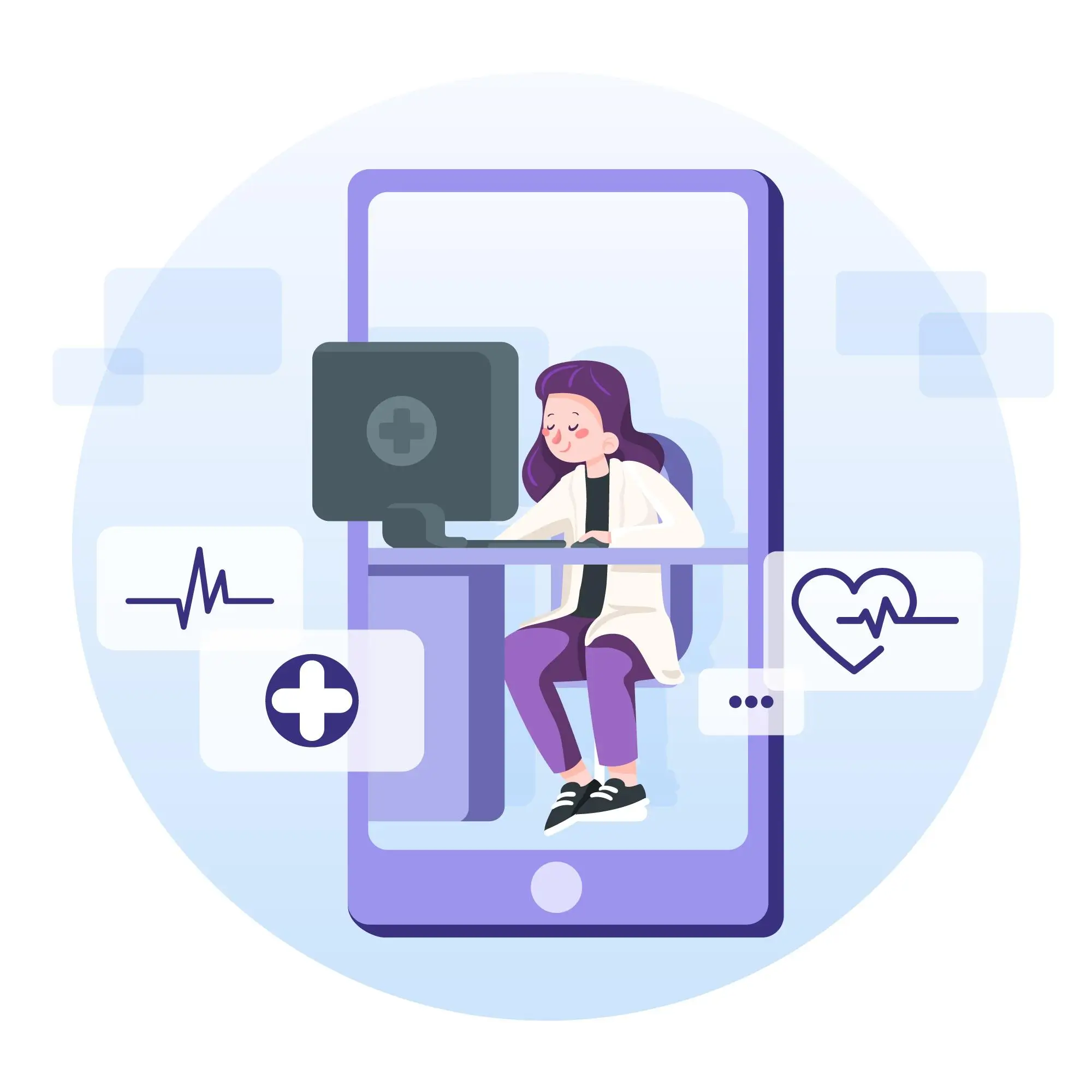A 2022 NHS staff survey revealed that nearly 40% of nurses and midwives reported feeling burned out from their work, highlighting the intense pressures faced by health and social care professionals in the UK. Many skip meals, forgo breaks, and carry the emotional burden of their roles well beyond their shifts. This chronic exhaustion not only affects their wellbeing but also compromises patient care.
Self-care means taking simple, consistent actions to stay mentally, physically, and emotionally healthy. It’s not indulgence—it’s essential for long-term effectiveness and job satisfaction in demanding care roles.
In this blog, you’ll discover the significance of self-care, the risks of neglecting it, practical strategies to incorporate into your routine, and how organisations can foster a supportive environment for their staff.
What is Self-Care?
For health and social care professionals, self-care means taking basic steps to protect your own health—physically, mentally, and emotionally. It’s not about being selfish. It’s about staying strong enough to do your job well.
That might mean eating proper meals, taking short breaks, or saying no when you’re overstretched. These small actions help prevent burnout and keep you focused.
You’re trained to care for others. But without caring for yourself, it becomes harder to stay present, calm, and effective.
Emotional and Physical Demands of Care Work
Working in health and social care means dealing with high emotional pressure. You’re often the one supporting people through grief, illness, trauma, or crisis. These situations stay with you—even after your shift ends.
The emotional strain doesn’t always show up right away. But over time, it can lead to stress, anxiety, and feeling emotionally drained.
Physically, the job is just as demanding. Long hours, constant movement, and lack of proper rest take a toll on your body. It’s easy to skip meals, ignore pain, or push through exhaustion.
These demands build up, especially when support is limited. You might notice fatigue, irritability, or trouble focusing—but not link it back to the job.
That’s why recognising both emotional and physical stress is key. Understanding what’s wearing you down is the first step to protecting your wellbeing.
Consequences of Poor Self-Care
When you don’t look after yourself, it catches up with you—often faster than you expect. You may feel tired all the time, even after sleep. Tasks that used to feel simple start to feel overwhelming. Let’s talk about what really happens when we neglect ourselves.
1. Burnout: Running on Empty
Without proper rest and recharge, exhaustion creeps in. You might feel drained, irritable, or unable to focus. Over time, even small tasks start feeling overwhelming.
2. Weakened Immune System
Stress and poor habits take a toll on your body. You might get sick more often or take longer to recover. Skipping sleep and proper nutrition leaves you vulnerable.
3. Strained Relationships
When you’re constantly tired or stressed, patience runs thin. Little frustrations can lead to unnecessary arguments. Loved ones may feel neglected, even if you don’t mean to.
4. Mental Health Struggles
Ignoring self-care can fuel anxiety, sadness, or low motivation. Small problems start feeling bigger because you lack the energy to cope. Over time, it becomes harder to bounce back.
5. Loss of Joy in Daily Life
Hobbies, socialising, and even quiet moments lose their appeal. Life starts feeling like a never-ending to-do list. Without breaks, everything begins to feel like a chore.
6. Physical Health Decline
Headaches, muscle tension, and digestive issues can become frequent. Long-term neglect may lead to serious health problems. Your body sends signals—it’s important to listen.
7. Lower Productivity (Even When You Push Hard)
You might think skipping breaks helps you do more, but the opposite happens. Fatigue slows your focus, creativity, and decision-making. Working nonstop actually makes you less effective.
8. The Cycle of Guilt and Neglect
Feeling run-down makes self-care seem even harder to prioritise. But the longer you ignore it, the worse the cycle gets. Breaking free starts with small, intentional steps.
The Positive Impact of Self-Care on Your Work
When you take care of yourself, you show up stronger for others. You think more clearly, respond more calmly, and stay focused even during busy shifts.
Good self-care boosts your energy and mood. This makes it easier to handle stress and stay patient in difficult moments.
You also recover quicker from tough days. A short walk, a good meal, or proper sleep can make the next day feel more manageable.
Self-care helps you stay connected to your work. It keeps your sense of purpose strong and reminds you why you chose this job in the first place.
Most importantly, your care becomes more consistent. You’re less likely to make mistakes and more likely to give the kind of support people need.
Looking after yourself doesn’t just help you—it improves the whole service. Everyone benefits when you’re well enough to give your best.
Health and Social Care Level 3 Diploma
Practical Self-Care Strategies You Can Use
Self-care doesn’t have to be complicated or time-consuming. The goal is to build small habits that fit into your day and help you feel more balanced. Here are a few practical ways to start.
1. Take Regular Breaks
Even short breaks make a difference. Step outside for a few minutes of fresh air or sit quietly with a cup of tea. These moments give your mind and body a quick reset.
Try not to skip breaks, even when it’s busy. You’ll be more useful if you’re rested than if you’re running on empty.
2. Set Boundaries
It’s okay to say no. You can’t take care of everyone if you’re constantly saying yes to extra shifts or last-minute tasks.
Boundaries help you protect your time and energy. Let others know what you can and can’t do—and stick to it.
3. Stay Nourished and Hydrated
Food and water are basic but often ignored during busy days. Try to eat meals with proper fuel—not just quick snacks or caffeine.
Keep a bottle of water with you. Staying hydrated helps you stay alert and clear-headed.
4. Get Some Movement In
You don’t need a full workout. A short walk, some stretches, or light activity during your shift can reduce stress and improve your mood.
Even five minutes of movement can reset your focus.
5. Talk to Someone
Don’t carry it all alone. Share how you’re feeling with a trusted colleague, manager, or friend. Sometimes just talking helps you process a rough day.
If things feel too heavy, don’t wait—reach out for professional support. It’s a sign of strength, not failure.
6. Make Time for Sleep
Quality sleep helps your body recover and your mind stay sharp. Aim for a consistent routine, even if your shifts vary.
Try to wind down properly—avoid screens, and give yourself a bit of quiet before bed.
Role of the Employer in Staff Wellbeing
Self-care isn’t just a personal responsibility—it’s also something your workplace should support. Employers play a big part in making sure staff can stay healthy, safe, and well.
A good care environment doesn’t just focus on patients or service users. It also takes care of the people doing the work.
Supportive Work Culture Matters
A workplace that values staff wellbeing creates a culture of care from the inside out. That means encouraging breaks, checking in on staff, and recognising when someone is struggling.
Open conversations about stress, workload, and support should be normal—not a last resort.
When leaders listen and take action, it helps staff feel seen and valued. This goes a long way in preventing burnout.
Practical Changes Employers Can Make
Rotas should be fair and flexible when possible. Long runs of difficult shifts or back-to-back night duties can quickly wear people down.
Encouraging proper rest between shifts, and making sure leave is taken, helps staff come back refreshed.
Access to mental health support is also key. This could be counselling services, wellbeing sessions, or even regular team check-ins.
Small things also make a difference—comfortable rest spaces, snacks on shift, or simply being thanked for your work.
Leadership Sets the Tone
Managers and senior staff lead by example. If they value self-care, others are more likely to feel safe doing the same.
It’s not just about what’s said, but what’s allowed. If skipping lunch is normal, people will follow that lead. If breaks are encouraged, people will take them.
Conclusion
Self-care isn’t selfish—it’s essential. Neglecting your wellbeing affects your work, your health, and your future. But small, consistent steps—like proper rest, setting boundaries, and asking for support—build lasting resilience, even on the busiest days.
To deepen your skills and protect your wellbeing in care work, you might explore the Level 3 Diploma in Health and Social Care, a recognised UK qualification. As Dr Thema Bryant puts it, “Self-care is how you take your power back” (Psychology Today, 2022). By investing in your wellbeing, you’re also investing in safer, stronger communities. Start small—but start today.
Frequently Asked Questions
Self-care is crucial for health and social care professionals because the emotional and physical demands of the job can lead to burnout, stress, and exhaustion. Regular self-care helps prevent these issues, ensuring professionals can continue providing quality care without compromising their own health.
Health and social care workers face emotional challenges such as compassion fatigue, dealing with grief and trauma, and supporting people in crisis. These challenges can be emotionally draining, leading to stress and burnout if not properly managed.
Poor self-care can lead to burnout, fatigue, and reduced mental clarity, affecting your ability to make decisions, remain patient, and deliver quality care. It can also result in physical health issues, such as weakened immunity and higher stress levels, which impact job performance.
Some practical self-care strategies include taking regular breaks, setting healthy boundaries, staying hydrated and well-nourished, getting movement through short walks or stretches, and talking to someone when feeling overwhelmed.
Yes, self-care helps maintain emotional balance and mental clarity, which in turn enhances your relationships with colleagues and patients. When you're well-rested and emotionally grounded, you're more patient, present, and effective in your role.
Employers can support self-care by providing a fair work-life balance, encouraging regular breaks, offering access to mental health resources, creating a supportive work environment, and ensuring staff have time off when needed.
If you're feeling overwhelmed, it’s important to recognise the signs of stress early. Take a break, talk to a colleague or supervisor, and seek professional support if needed. You don’t have to go through it alone.
When you prioritise your own wellbeing, you're able to give better care. Good self-care leads to clearer thinking, greater patience, and reduced stress—ultimately enhancing the quality of care you provide to patients or clients.
Self-care is more than just taking breaks. It includes managing your workload, maintaining a healthy lifestyle, setting boundaries, seeking emotional support, and prioritising mental and physical health to ensure long-term job satisfaction.
To learn more about self-care and best practices in the field, consider taking courses like the Health and Social Care Level 3 Diploma. This course provides valuable insights into maintaining a healthy work-life balance and improving wellbeing in demanding care roles.

















